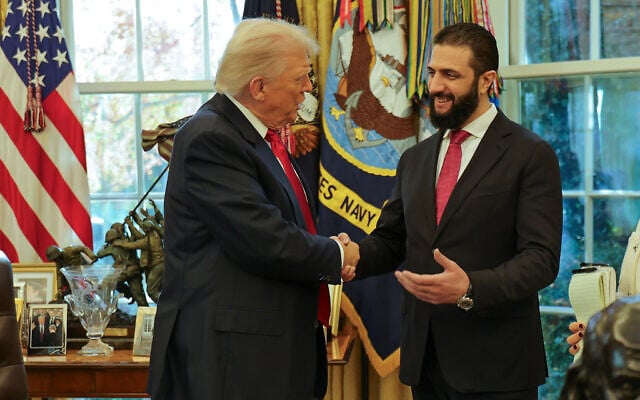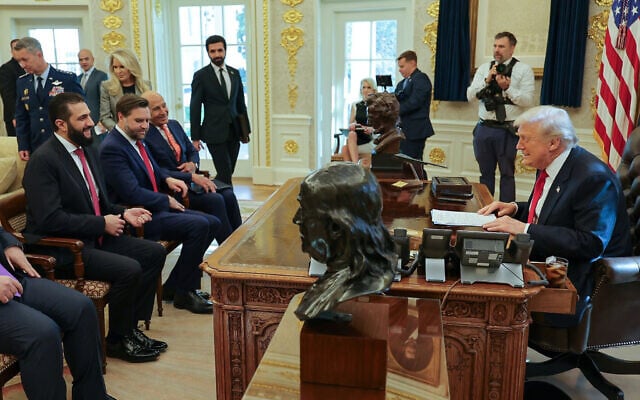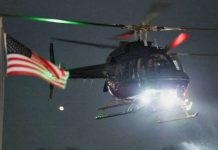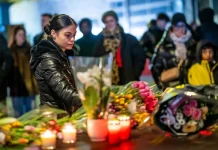
US president promises ‘announcements’ after first-ever White House hosting of Syrian leader; Damascus set to join coalition to fight ISIS; Trump looking to broker security pact with Israel
US President Donald Trump hosted Syrian President Ahmed al-Sharaa at the White House on Monday, a visit that capped a stunning year for the rebel-turned-ruler who toppled a longtime autocratic leader and has since sought to end Syria’s decades of international isolation.
Trump met with Sharaa in the first-ever visit by a Syrian president to Washington since the country gained its independence from France in 1946, six months after their first meeting in Saudi Arabia, where the US leader announced plans to lift sanctions, and just days after the US said the former al-Qaeda commander was no longer a “Specially Designated Global Terrorist.”
Sharaa arrived at the White House without the fanfare often given to visiting foreign leaders. He entered through a side entrance unseen by reporters instead of through the West Wing’s main door, where cameras are positioned.
Sharaa, 43, took power last year after his Islamist fighters launched a lightning offensive from their enclave in Syria’s northwest and overthrew longtime Syrian authoritarian leader Bashar al-Assad just days later.
Syria’s regional realignment — which has included hosting The Times of Israel’s editor-in-chief David Horovitz for an unprecedented visit — has since moved at a dizzying pace, away from Assad’s key allies Iran and Russia and toward Turkey, the Gulf — and Washington.
Security was expected to be a top focus of Sharaa’s meeting with Trump, who, in a major US policy shift, has sought to help Syria’s fragile transition.

The US is brokering talks on a possible security pact between Syria and Israel, which remains wary of Sharaa’s former terror ties, and has criticized his government’s treatment of minorities.
Reuters reported last week that the US is planning to establish a military presence at a Damascus airbase.
Syria is also possibly set to join a US-led coalition to fight the Islamic State group.
Following his meeting with Sharaa, Trump told reporters, “You can expect some announcements on Syria.
The US president didn’t elaborate on the content of those pending announcements in response to a question about a potential deal between Israel and Syria.
“We want to see Syria become a country that’s very successful, and I think this leader can do it. People said he’s had a rough past. We’ve all had rough pasts, but… if you didn’t have a rough past, you wouldn’t have a chance,” Trump told reporters in the Oval Office.
He noted that Sharaa “gets along very well” with Turkish President Recep Tayyip Erdogan, whom he says is “a great leader.”
“We’re working also with Israel on getting along with Syria, getting along with everybody, and that’s working amazingly,” Trump said.
He then turned his attention to Gaza briefly, pointing out that Hamas has returned “numerous bodies” of deceased hostages in recent days.
“They worked very hard to do that. So we have peace in the Middle East,” Trump said.
Just hours before the landmark talks, word emerged of two separate Islamic State plots to assassinate Sharaa that had been foiled over the last few months, according to a senior Syrian security official and a senior Middle Eastern official.
The sources said the plots underlined the direct threat Sharaa faces as he tries to consolidate power in a country ruined by 14 years of civil war.
Over the weekend, the Syrian interior ministry launched a nationwide campaign targeting Islamic State cells across the country, arresting more than 70 suspects, government media said.
Last sanctions hurdle
Days before the meeting, Trump told reporters at the White House that “a lot of progress has been made” on Syria.
“I think [Sharaa is] doing a very good job. It’s a tough neighborhood, and he’s a tough guy, but I got along with him very well,” Trump said.
After Sharaa and Trump met in Riyadh in May, Trump announced he would lift all sanctions on Syria.
But the toughest measures, known as the Caesar Sanctions Act, require a repeal from Congress. The White House and State Department have publicly backed lifting them before 2025 ends, but experts say the government shutdown may affect that time frame.
Still, on Monday, the Treasury Department said it was partially suspending the imposition of the sanctions for 180 days.
The suspension would halt all sanctions except for certain transactions involving Russia and Iran, the Treasury said, adding that the move replaced a previous waiver enacted on May 23.
Sharaa was nevertheless expected to strongly advocate for a permanent repeal, which would help spur global investment in a country ravaged by 14 years of war and which the World Bank estimates will take more than $200 billion to rebuild.
Several influential members of Congress have called for the lifting of the 2019 Caesar sanctions, passed in response to human rights abuses under Assad. A few of Trump’s fellow Republicans want the sanctions to stay in place, but that could change if Trump applies pressure.
A proposal put forward by Senator Jeanne Shaheen of New Hampshire, the top Democrat on the Senate Foreign Relations Committee, would end the sanctions without any conditions. A different proposal, drafted by hawkish Trump ally Senator Lindsey Graham, suggested setting conditions for a sanctions repeal that would be reviewed every six months.
But advocates argue that any repeal with conditions would prevent companies from investing in Syria because they would fear potentially being sanctioned. Mouaz Moustafa, executive director of the Syrian Emergency Task Force, likened it to a “hanging shadow that paralyzes any initiatives for our country.”
Syria’s social fabric has been more recently tested. New bouts of sectarian violence have left more than 2,500 dead since Assad’s fall, deepening civil war wounds and putting into question the new rulers’ ability to govern for all Syrians.
Trump’s focus on Syria comes as his administration seeks to keep intact a US-brokered Gaza ceasefire deal between Israel and Hamas and push forward on his 20-point plan for an end to the two-year-old war in the Strip. Some of the toughest issues remain unresolved.
Not content with trying to bring peace to the Gaza Strip, Trump was also reported to be trying to improve ties between Israel and Syria, by way of his son-in-law Jared Kushner, who was in Israel on Monday for meetings with top Israeli officials.
According to the Saudi al-Hadath channel, Kushner’s meeting with Prime Minister Benjamin Netanyahu earlier on Monday did not focus solely on Gaza, but also on Syria.
According to the report, the two men discussed Israel’s concerns regarding a potential security agreement with Syria, which has been in the works for some months now, but with little to show for it.
The report said Netanyahu asked Kushner to pressure Syria into moving ahead with the security agreement, as doing so could potentially pave the way for the country to enter the Abraham Accords agreement, drastically altering the landscape in the Middle East.
Dramatic shifts
Sharaa’s own turnaround is no less impressive than his country’s. He joined al-Qaeda in Iraq around the time of the 2003 US-led invasion and spent years in US prison there, before returning to Syria to join the insurgency against Assad.
In 2013, the US designated Sharaa, then known as Abu Mohammad al-Golani, as a terrorist for his ties to al-Qaeda. He broke ties with the group in 2016 and consolidated his influence in Syria’s northwest as the leader of the Hay’at Tahrir al-Sham militia.
The US removed a $10 million bounty on Sharaa’s head in December, and just last week, the United Nations Security Council lifted terror-related sanctions designations on him and his Interior Minister Anas Khattab.
Following the UN move, Britain and the US lifted sanctions on the pair. In Washington, that included removing “Specially Designated Global Terrorist” designations on them.
“Sharaa’s visit to Washington is emblematic of the dramatic shift underway, where Syria went from being an Iranian satrapy to joining the American-led camp, and Sharaa himself transformed from a wanted terrorist to a partner in the war on terror,” said Firas Maksad, managing director for Middle East and North Africa at the New York-based Eurasia Group.
“Much can still go wrong in this nascent experiment, and there remain grave concerns about minority and individual rights,” Maksad said, “but the first-ever visit by a Syrian president to Washington is a moment of hope that Syria is on the right track.”
BY: The Times Union – TOl







